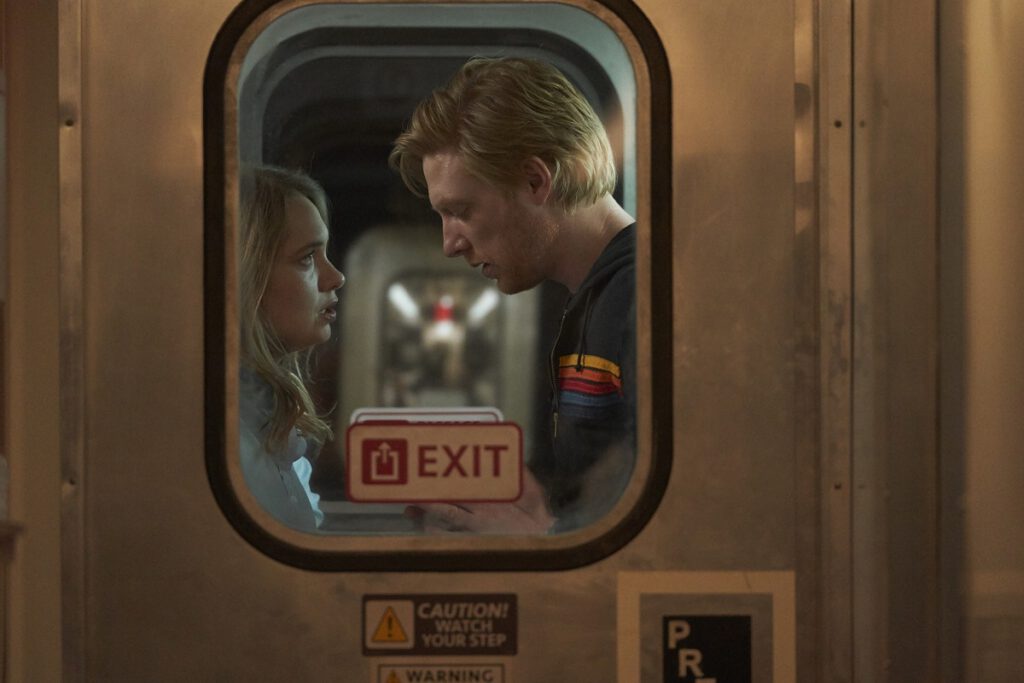Merritt Wever and Domhnall Gleeson headline the latest high-profile comedy, a project that comes to HBO with the momentum of the multiple awards won by “Fleabag” thanks to being executive produced by (and eventually co-starring) Phoebe Waller-Bridge. Written and produced by Vicky Jones, the best of “Run” has that razor-sharp wit that made Waller-Bridge famous, but it’s really the work by Wever and Gleeson that elevates it into a must-watch. They’re able to capture the battle of excitement and trepidation that comes when you make a life-changing decision. Some of the plotting in the first five episodes of “Run” is a bit questionable but every time this threatens to go off course, Wever or Gleeson will find that perfect character beat. While I’m still not 100% sure the whole thing works narratively, these episodes have wonderful individual moments, and it’s the kind of show that’s never quite telegraphs where it’s going, which is exactly the kind of unpredictability that these two protagonists need in their lives.
Ruby (Wever) and Billy (Gleeson) made a pact almost 20 years ago when they were in college. If one texted “RUN” to the other, and then received “RUN” back in response, they would simply flee their lives. Drop what they’re doing and meet on the first train out of New York City after 5pm. In the opening scene, after a numbing conversation with her husband (Rich Sommer), Ruby gets that text. She doesn’t respond at first. You instantly get the impression that both Ruby and Billy have done this before, the other half of the equation playing it safe and ignoring the offer. Ruby doesn’t ignore it this time. And she’s on a plane to NYC before she can even really think about what she’s doing.
It’s not like Ruby and Billy have stayed in touch. After all, he doesn’t know she has a family. Although he’s semi-famous enough for her to keep up with him to some degree. But they put a moratorium on too much personal information as they flirt their way from the Big Apple to the Windy City, alternately thrilled by what they’re doing and totally terrified. They’re old lovers getting to know each other again. The best moments in “Run” are filled with the allure of the unknown, and the adrenaline that would be produced by jumping into it. Wever is so subtle in the way she captures the confidence it takes to even try something like this, but she embeds just enough doubt about her decision into every scene. And Gleeson keeps up with her, clearly attracted to the only person who seems to still know how to call him on his shit. Wever and Gleeson have remarkable chemistry, which goes a long way to making “Run” work.

As great as they are, “Run” has some rocky moments in plotting. There are times when the characters seem a bit too self-aware, always there with the right quip or sexy thing to say. And Archie Panjabi plays a character whom I didn’t quite buy, either as a sounding board for Ruby and Billy’s concerns at first or an eventual problem for them to solve. “Run” moves so quickly in narrative terms, but I found its minor character beats more enjoyable, just watching Billy and Ruby feel each other out on a boat tour in Chicago, for example. Believe it or not, “Run” is a show that works best when it slows down. It sometimes feels a bit too rushed and hurried to get to its next major moment, although I do think that’s embedded in the plot—if Ruby and Billy had more time to think about what they’re doing, they might turn back.
In the end, “Run” may have been billed as a Waller-Bridge project, but one walks away from it further convinced that Merritt Wever and Domhnall Gleeson can do anything. The star of “Godless,” “Nurse Jackie” and “Unbelievable” has relatively quietly developed a loyal following and I expect “Run” will expand her star status even further. She simply doesn’t hit a false note. And Gleeson matches her beat for beat. Most of all, these two actors take a show with a somewhat ridiculous premise and make it work. Not only do we want to spend time with them, we believe they would leave successful lives behind for one another. They’re so captivating and consistently engaging that you might wish you could run away with one of them too.
Five episodes screened for review.












